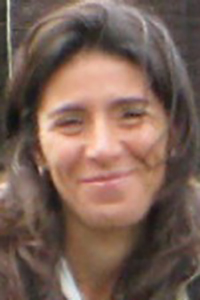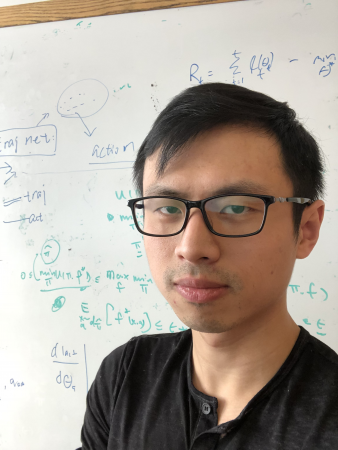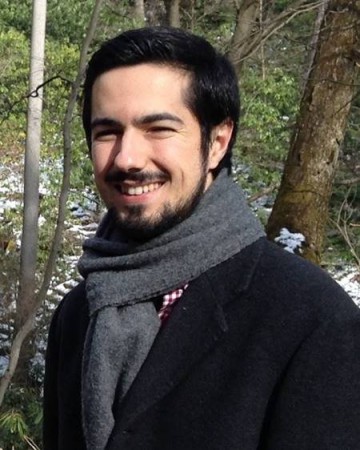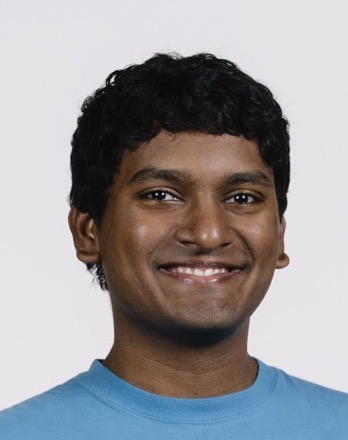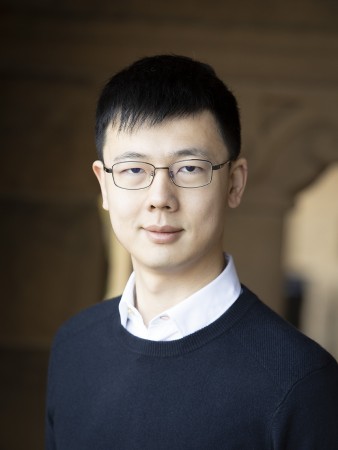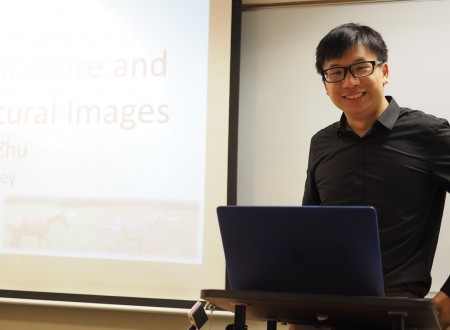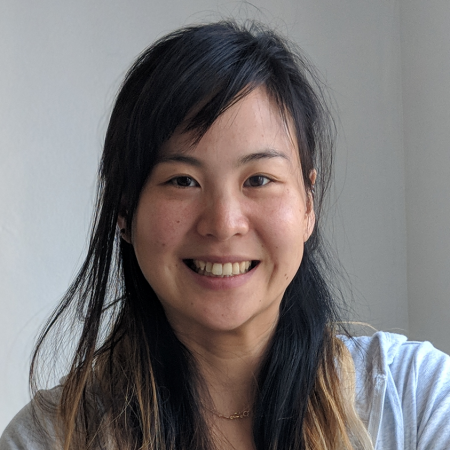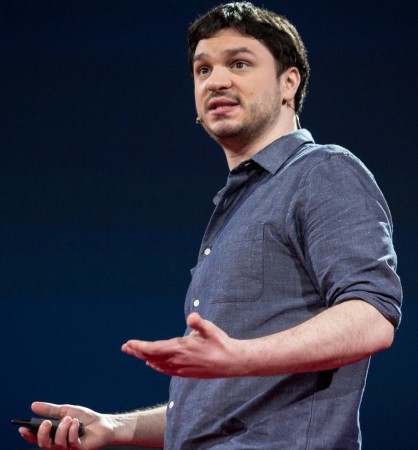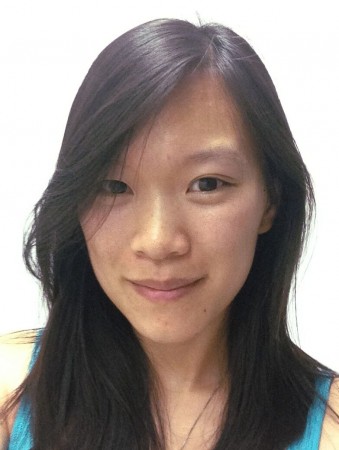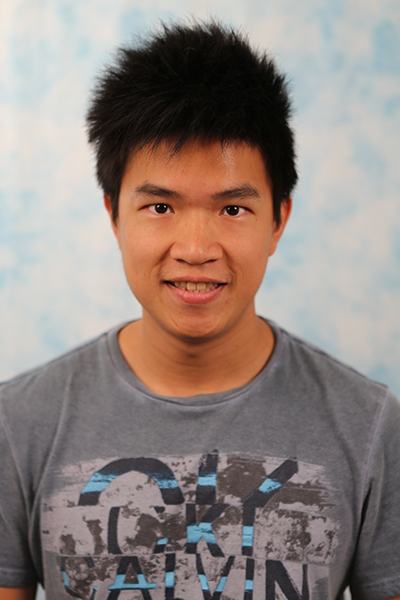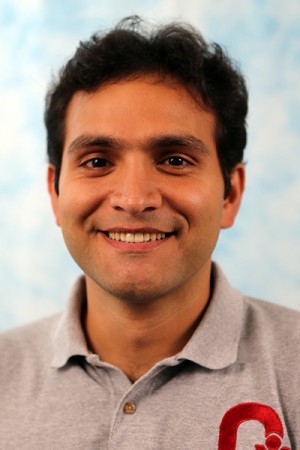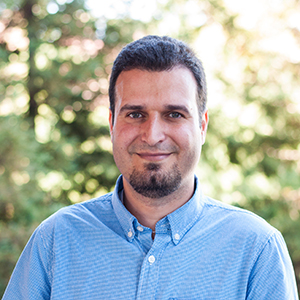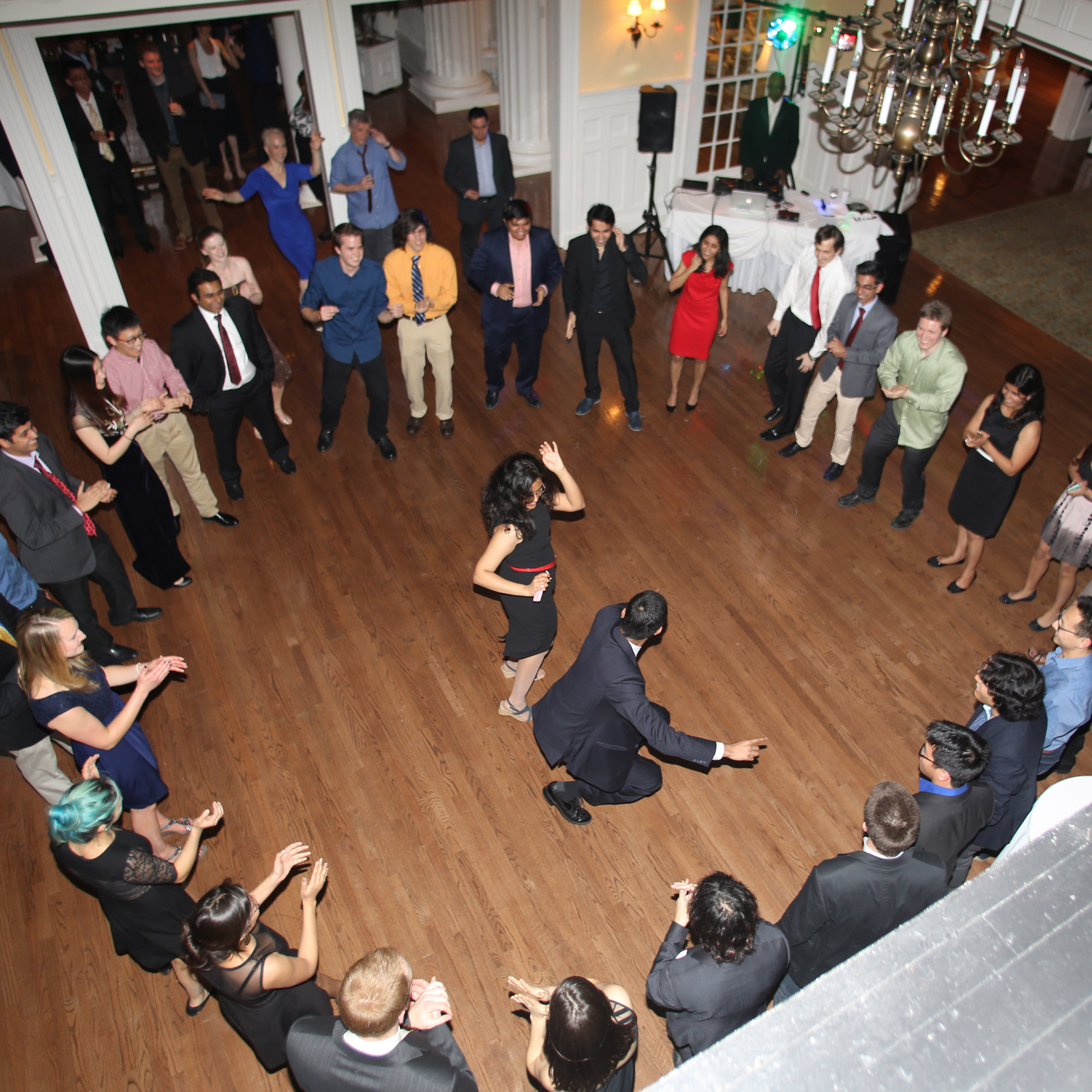Geometry Processing in The Wild
Abstract: Geometric data abounds, but our algorithms for geometry processing are failing. Whether from medical imagery, free-form architecture, self-driving cars, or 3D-printed parts, geometric data is often messy, riddled with "defects" that cause algorithms to crash or behave unpredictably. The traditional philosophy assumes geometry is given with 100% certainty and that algorithms can use whatever [...]
Automatic Human Behavior Analysis and Recognition for Research and Clinical Use
Nonverbal behavior is multimodal and interpersonal. In several studies, I addressed the dynamics of facial expression and head movement for emotion communication, social interaction, and clinical applications. By modeling multimodal and interpersonal communication my work seeks to inform affective computing and behavioral health informatics. In this talk, I will address some of my recent work [...]
Service Robots for All
Robots have the unique potential to help people, especially people with disabilities, in their daily lives. However, providing continuous physical and social support in human environments requires new algorithmic approaches that are fast, adaptable, robust to real-world noise, and can handle unconstrained behavior from diverse users. This talk will describe my work developing and studying [...]
Carnegie Mellon University
Optimal control of compliant bipedal gaits and their implementation on robot hardware
Abstract: Legged animals exhibit diverse locomotion patterns known as gaits, which are capable of robustly traversing terrains of variable grade, roughness, and compliance. Despite the success of legs in nature, wheeled solutions still dominate the field of robotics. State-of-the-art humanoid robots have not yet demonstrated locomotion behaviors that are as robust or varied as their [...]
Self Driving Cars and AI: Transforming our cities and our lives
Abstract: Artificial intelligence and machine learning are critical to reaching full autonomy in self driving cars. I will present two autonomy systems along with the use of machine learning in each of them. I will summarize recent progress in commercializing these systems and make some observations about the potential impact of these systems in our [...]
Carnegie Mellon University
Towards Generalization and Efficiency in Reinforcement Learning
Abstract: In classic supervised machine learning, a learning agent behaves as a passive observer: it receives examples from some external environment which it has no control over and then makes predictions. Reinforcement Learning (RL), on the other hand, is fundamentally interactive : an autonomous agent must learn how to behave in an unknown and possibly [...]
Resilient Safety Assurance for Human-Centered Autonomous Systems
In order for autonomous systems like robots, drones, and self-driving cars to be reliably introduced into our society, they must be able to actively account for safety during their operation. While safety analysis has traditionally been conducted offline for controlled environments like cages on factory floors, the much higher complexity of open, human-populated spaces like [...]
Carnegie Mellon University
Rethinking the Relationship between Data and Robotics.
Abstract: While robotics has made tremendous progress over the last few decades, most success stories are still limited to carefully engineered and precisely modeled environments. Interestingly, one of the most significant successes in the last decade of AI has been the use of Machine Learning (ML) to generalize and robustly handle diverse situations. So why [...]
Robotic Morphing Matter
Abstract: Morphing matter harnesses the programmability in material structures and compositions to achieve transformative behaviors and integrates sensing, actuation, and computation to create adaptive and responsive material systems. These material systems can be leveraged to design soft robots, self-assembling furniture, adaptive fabrics, and self-folding foods. In this talk, Lining presents the recent works in the [...]
Carnegie Mellon University
Robust Active SLAM for Real-time Large-scale Indoor Dense 3D Reconstruction
Abstract: Real-time dense 3D reconstruction of indoor environments has been a popular research field due to its wide application, such as inspection, virtual / augmented reality (VR/AR), and service robotics. While many state-of-the-art algorithms are capable of reconstructing accurate 3D dense models in general indoor scenes, robustness is still an unsolved problem for all of [...]
Faculty Candidate: Yuke Zhu
Talk: Closing the perception-action loop Abstract: Robots and autonomous systems have been playing a significant role in the modern economy. Custom-built robots have remarkably improved productivity, operational safety, and product quality. However, these robots are usually programmed for specific tasks in well-controlled environments, unable to perform diverse tasks in the real world. In this talk, I will [...]
The Mechanical Side of Artificial Intelligence
Abstract: Artificial Intelligence typically focuses on perception, learning, and control methods to enable autonomous robots to make and act on decisions in real environments. On the contrary, our research is focused on the design, mechanics, materials, and manufacturing of novel robot platforms that make the perception, control, or action easier or more robust for natural, unstructured, and [...]
Self-Directed Learning
Abstract: Generalization, i.e., the ability to adapt to novel scenarios, is the hallmark of human intelligence. While we have systems that excel at recognizing objects, cleaning floors, playing complex games and occasionally beating humans, they are incredibly specific in that they only perform the tasks they are trained for and are miserable at generalization. In [...]
Learning to see the physical world
Abstract: Human intelligence is beyond pattern recognition. From a single image, we're able to explain what we see, reconstruct the scene in 3D, predict what's going to happen, and plan our actions accordingly. In this talk, I will present our recent work on physical scene understanding---building versatile, data-efficient, and generalizable machines that learn to see, reason about, and interact [...]
Learning to Synthesize Images
Abstract: People are avid consumers of visual content. Every day, we watch videos, play games, and share photos on social media. However, there is an asymmetry – while everybody is able to consume visual content, only a chosen few (e.g., painters, sculptors, film directors) are talented enough to express themselves visually. For example, in modern [...]
Carnegie Mellon University
Direct Drive Hands: Force-Motion Transparency in Gripper Design
Abstract: The Direct Drive Hand (DDHand) project is exploring a new design philosophy for grippers. The conventional approach is to prioritize clamping force, leading to high gear ratios, slow motion, and poor transmission of force/motion signals. Instead, the DDHand prioritizes transparency: we view the gripper as a signal transmission channel, and seek high-bandwidth, high-fidelity transmission [...]
Faculty Candidate: Angjoo Kanazawa
Title: Perceiving Humans in the 3D World Abstract: Since the dawn of civilization, we have functioned in a social environment where we spend our days interacting with other humans. As we approach a society where intelligent systems and humans coexist, these systems must also interpret and interact with humans that reside in the 3D world. [...]
Three surprises and a story of prison education
Abstract: I will talk about three results that surprised me. First, I will show that the free configuration space of an elastic wire is path-connected, a result that makes easy a manipulation planning problem that was thought to be hard. Second, I will show a linear relationship between stimulation parameters, skin impedance, and sensation intensity [...]
Augmenting Imagination: Capturing, Modeling, and Exploring the World Through Video
Abstract: Cameras offer a rich and ubiquitous source of data about the world around us, providing many opportunities to explore new computational approaches to real-world problems. In this talk, I will show how insights from art, science, and engineering can help us connect progress in visual computing with typically non-visual problems in other domains, allowing [...]
Carnegie Mellon University
Terrain Relative Navigation for Lunar Polar Roving: Exploiting Geometry, Shadows, and Planning
Abstract: Water ice at the lunar poles could be the most valuable resource beyond planet Earth. However, that value is not foregone, and can only be determined by rovers that evaluate the distributions of abundance, concentration, and characteristics of this ice. The near-term explorations will be solar and unlikely to endure night, and hence are [...]
AI-Driven Videos Synthesis and its Implications
Abstract: In this talk, I will present my research vision in how to create photo-realistic digital replica of the real world, and how to make holograms become a reality. Eventually, I would like to see photos and videos evolve to become interactive, holographic content indistinguishable from the real world. Imagine taking such 3D photos to [...]
Carnegie Mellon University
Toward intuitive human controlled MAVs: motion primitives based teleoperation
Abstract: Humans excel at composing high-level plans that achieve a complex, multimodal objective; however, achieving proficiency in teleoperating multi-rotor aerial vehicles (MAVs) in unstructured environments with stability and safety requires significant skill and training. In this talk, we present human-in-the-loop control of a MAV via teleoperation using motion primitives that addresses these concerns. We show [...]
Understanding 3D Scans
Abstract: With recent developments in both commodity range sensors as well as mixed reality devices, capturing and creating 3D models of the world around us has become increasingly important. As the world around us lives in a three-dimensional space, such 3D models will not only facilitate capture and display for content creation but also provide [...]
Robots Learning from Human Teachers
Abstract: In this talk I will cover some of the recent work out of the Socially Intelligent Machines Lab at UT Austin (http://sim.ece.utexas.edu/research.html). The vision of our research is to enable robots to function in dynamic human environments by allowing them to flexibly adapt their skill set via learning interactions with end-users. We explore the ways in which [...]
Carnegie Mellon University
Improving Multirotor Trajectory Tracking Performance using Learned Dynamics Models
Abstract: Multirotors and other aerial vehicles have recently seen a surge in popularity, partly due to a rise in industrial applications such as inspection, surveillance, exploration, package delivery, cinematography, and others. Crucial to multirotors' successes in these applications, and enabling their suitability for other applications, is the ability to accurately track trajectories at high speed [...]
Carnegie Mellon University
Learning to Align without Geometric Supervision
Abstract: Extracting geometric information from image data is a highly nonlinear problem that exhibits in a number of visual recognition tasks such as object localization, facial landmark tracking and human pose estimation. Successful alignment across image data often serves as a crucial component in making them possible. In this talk, I will present how one [...]
Carnegie Mellon University
Hybrid Soft Sensing in Robotic Systems
Abstract: The increasing prevalence of wearable technology in our daily lives has created a demand for safe and robust sensing skins. Largely inspired by human skin, the ultimate goal of electronic skins is to measure diverse sensory information, conform to surfaces, and avoid interfering with the natural mechanics of the host or user. These demands [...]
Carnegie Mellon University
Automatic Real-time Anomaly Detection for Autonomous Aerial Vehicles
Abstract: The recent incidents with Boeing 737 Max 8 aircraft have raised concerns about the safety and reliability of autopilots and autonomous operations. There is a growing need for methods to monitor the status of aircraft and report any faults and anomalies to the human pilot or to the autopilot to deal with the emergency [...]
Creative Robots with Deep Reinforcement Learning
Recent advances in Deep Reinforcement Learning (DRL) algorithms provided us with the possibility of adding intelligence to robots. Recently, we have been applying a variety of DRL algorithms to the tasks that modern control theory may not be able to solve. We observed intriguing creativity from robots when they are constrained in reaching a certain [...]
2019 Robotics Institute Semi-formal
By invitation only: The 2019 Robotics Institute Semi-formal Robotics Institute members and a guest are invited to join us for our annual semi-formal! Join us for an evening of music, fun, food and friends! Food and beverage will include: hot hors d’oeuvres, stations for carving, pasta, fruit, cheese, coffee and dessert and hosted non-alcoholic beverages. [...]
Teruko Yata Memorial Lecture – Understanding Human Behavior for Robotic Assistance and Collaboration
Speaker: Henny Admoni, Assistant Professor, Robotics Institute Carnegie Mellon University Title: Understanding Human Behavior for Robotic Assistance and Collaboration . Human-robot collaboration has the potential to transform the way people work and live. Researchers are currently developing robots that assist people in public spaces, on the job, and in their homes. To be effective assistants, these robots [...]
2019 RI National Robotics Week Celebration
The Robotics Institute will celebrate the tenth annual National Robotics Week on April 11 & 12 with lectures, project demonstrations, the annual Mobot (mobile robot) races, and a reception for RI affiliated people. REGISTRATION IS NOW OPEN REGISTER HERE If you have any specific questions about the National Robotics Week open house please email Debbie [...]
Carnegie Mellon University
Towards Safe and Robust Behavior Mixing for Multi-Robot Systems
Abstract: Multi-robot systems have been widely studied for extending its capability of accomplishing complex tasks through cooperative behaviors. In large-scale multi-robot behavior mixing, the heterogeneous robotic team executes simultaneously multiple behaviors or sequences of behaviors with various task-prescribed controllers in real time to increase efficiency in parallel tasks. Key to the success of behavior mixing [...]
Carnegie Mellon University
Design and Evaluation of Robust Control Methods for Robotic Transfemoral Prostheses
Abstract: Amputees face a number of gait deficits due to a lack of control and power from their mechanically-passive prostheses. Of crucial importance among these deficits are those related to balance, as falls and a fear of falling can cause an avoidance of activity that leads to further debilitation. In this thesis, we investigate the [...]
Carnegie Mellon University
Vigneshram Krishnamoorthy – MSR Thesis Talk
Title: A Computational Framework for Norm-Aware Reasoning in Autonomous Systems Abstract: Autonomous agents are increasingly deployed in complex social environments where they not only have to reason about their domain goals but also about norms that can impose constraints on task performance. Integrating task planning with norm aware reasoning is a challenging problem due to [...]
Carnegie Mellon University
Deep Reinforcement Learning Representations for Robotics
Abstract: A long standing goal of robotics research is to create algorithms that can automatically learn complex control strategies from scratch. Part of the challenge of applying such algorithms to robots is the choice of representation. While RL algorithms have been successfully applied to many robotics tasks such as Ball-in-a-Cup and various RoboCup soccer domains, [...]

